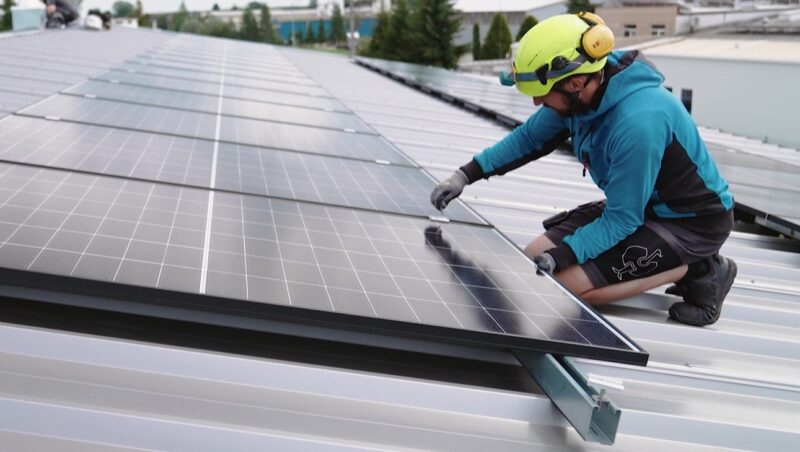Every year, the number of electric cars increases, and they are seen as an eco-friendly and economical alternative to gasoline-powered vehicles. Electric cars, or “EVs,” are praised for their quiet ride, low maintenance needs, and high safety levels, although concerns still remain about the time required to charge these vehicles. How long does it take to charge an electric car? How can charging time be reduced? In the article below, we discuss the factors that influence the charging time of electric cars, along with sample calculations and the benefits of installing an electric car charger.
Charging an Electric Car
Charging an electric car involves transferring electrical energy to the vehicle’s battery to charge it. This process can be done in several ways, including connecting to a charging station (either public or home) or using a standard household outlet with the appropriate cable. During charging, the vehicle’s battery stores energy, which can later be used to power the vehicle.
The main argument for purchasing an electric vehicle is environmental concerns—these types of cars do not emit exhaust gases that contribute to climate change. In addition, economic factors are also important, including lower operational costs and the potential for tax incentives.
While the number of electric vehicle (and hybrid) owners is steadily increasing, many people still have reservations about switching from traditional engines to electric power. One of the major concerns is the time required to charge an electric car, which is a key factor affecting the convenience of daily use.
Charging Methods for Electric Cars and Charging Time
There are three main methods for charging electric cars, each differing in the time required to charge the battery.
- Home Charging (AC) – Standard electric car charging uses alternating current (AC) with a home-installed charger. Typical charging power ranges from 3.7 kW to 22 kW. Charging time at home depends on the vehicle’s battery capacity and the power provided by the charger.
- Public Charging Stations (AC/DC) – Public charging stations can handle both direct current (DC) and alternating current (AC). The power at such stations is often higher than at home, reducing the time needed to charge the battery.
- Fast Charging (DC) – The most efficient and quickest charging occurs at DC fast charging stations. These stations can provide charging power of over 50 kW, with some modern stations even reaching up to 350 kW. Charging at such stations is significantly faster than AC charging.
How long does it take to charge an electric car? Factors affecting charging time
It’s difficult to give a definitive answer to how long it takes to charge an electric car because it depends on several factors. These factors are discussed in this part of the article. Electric car charging is the result of a complex interaction of several aspects, which play a key role in the vehicle charging process.
Battery capacity, charging power, the type of charger, battery charge level, and weather conditions are the key variables that determine how long it takes to charge an electric car. Here’s a detailed discussion of the factors influencing the charging time of electric cars and plug-in hybrids.
Battery Capacity
Battery capacity is the most important factor influencing electric car charging time. The larger the battery capacity, the more energy needs to be delivered, which means longer charging times. Standard batteries in electric vehicles range from several tens of kWh to over 100 kWh, resulting in significant differences in charging time, even when using the same power sources. However, it’s worth noting that it’s not always necessary to fully charge the battery—you can reduce charging time if you only need additional energy for a short trip.
Charging Power
Charging power determines how quickly energy can be delivered to the electric car’s battery. This parameter directly affects the charging time—the higher the power, the shorter the time needed to charge the battery to a certain level.
When charging an electric car at home, you have two options. The first is to plug it into a standard 230 V socket. In this case, the car will be charged at a power of up to about 3 kW, which may require a full day of charging to reach a full battery. The second option is a private charger—a home electric car charging station, known as a wallbox, which can significantly reduce charging time.
How long does it take to charge an electric car with different charging powers? Various types of chargers offering different charging speeds are available on the market. The most common home chargers use alternating current (AC) and are called slow chargers, which are generally sufficient for daily use. Their power ranges from 3.6 kW to 22 kW, with a single-phase voltage of 230V or three-phase 400V.
There are also fast chargers, using direct current (DC), primarily available at public charging stations. These chargers can deliver more power, significantly reducing electric vehicle charging time. Fast charging stations, offering power up to several hundred kW, allow much faster charging than home chargers.
However, not all electric cars are equipped to handle fast charging, and using such chargers may lead to quicker degradation of the electric car’s battery capacity.
Battery Charge Level
Charging efficiency can be reduced when the battery is already partially charged. How long does it take to charge an electric car depending on the battery charge level? During fast charging, charging time can increase as the battery approaches full charge, due to the need for thermal management and protecting the battery from overheating or damage.
Vehicle Type
The specific type of vehicle also determines the electric car charging time, which can vary significantly depending on the supported charging power. Electric vehicles with lower charging power, for example, up to 7 kW, typically require longer charging times when using standard home outlets. Meanwhile, vehicles capable of fast charging, supporting power above 22 kW, can be charged much faster at specialized charging stations.
Weather Conditions
External temperature can significantly affect battery charging efficiency. Extreme temperatures, both high and low, can cause battery performance to drop, thus leading to longer vehicle charging times.
The optimal charging conditions for electric cars are in the temperature range of 20 to 25°C. Lower temperatures further reduce the vehicle’s range.
How long it takes to charge an electric car depends on the factors discussed above, which are worth understanding when purchasing a vehicle or planning to install a home charger.
Estimated Charging Times
Technological advancements in battery technology are gradually reducing the time needed to charge an electric vehicle, increasing the convenience of using them in home environments.
So, how long does it take to charge an electric car in practice? To determine the estimated charging time, divide the battery capacity by the charging power.
For example, for electric cars equipped with a standard battery capacity of 40 to 60 kWh, charging using a typical home charger with a power of 3 to 7 kW will take 8 to 12 hours.
Using a fast charger with a power of 50 kW can reduce charging time to about 1-2 hours, depending on battery capacity.
At a charging station with a power of 150 kW, charging an electric car will take just 20 to 30 minutes. These times are approximate—charging power is not constant during the process.
These example values will vary depending on the specific model of the electric vehicle and the charger’s specifications.
Home Charging Station Setup
A wallbox, as a typical home charging station for electric cars, enables fast and convenient vehicle charging without relying on public stations. It is connected to the home electrical installation and equipped with a control module for managing the charging process and a suitable socket for connecting the charging cable. It usually offers power from several kilowatts to tens of kilowatts (depending on the specific model).
Wallboxes often allow programming the charging schedule, giving users flexibility in managing charging times and costs by using cheaper nighttime rates. Some charger models are also equipped with energy consumption monitoring features and integration with smart home systems, which significantly increases the convenience and efficiency of using electric vehicles at home.
The average cost of a wallbox is several thousand PLN. Since electric cars can mainly be charged overnight (associated with lower nighttime rates), this investment quickly pays off.
Installing a Home Charging Station – Is It Worth It?
In the first quarter of 2024, a total of 108,331 registered electric-powered passenger cars were on Polish roads: 57,958 fully electric vehicles (BEVs) and 53,817 plug-in hybrids (PHEVs).
With the increasing number of electric vehicles, the development of charging infrastructure is becoming more important. According to experts, the infrastructure is not keeping up with the current number of electric cars on Polish roads.
By the end of April this year, there were 6,490 public electric vehicle charging points (3,686 stations) in Poland. 28% of these were fast charging points using direct current (DC), and the remaining 72% were slow charging points using alternating current (AC) with power less than or equal to 22 kW.
Home electric vehicle charging stations offer numerous advantages compared to public charging stations, especially in Poland, where charging infrastructure is still underdeveloped. Using home chargers allows for convenient vehicle charging without waiting in line at public stations.
Setting up your own station allows flexible charging planning according to individual needs and ensures independence from the availability of external charging points.
Summary of Installing an Electric Car Charger
The shortest electric car charging time, which can be as little as around one hour, can be achieved at fast charging stations. These stations can provide enough range to travel 100 to 150 km in such a short time. On the other hand, the longest charging time occurs when using a standard 230V socket, where charging can take several hours to an entire day. Installing a wallbox at home allows you to charge an electric vehicle in just a few hours, making it an attractive alternative to public stations.
The growing interest in eco-friendly solutions is contributing to the increasing global popularity of electric cars. One of the key concerns that raises doubts and curiosity among potential electric vehicle users is the charging time of these vehicles.
How long it takes to charge an electric car depends on the factors discussed in this text. It should be emphasized that further technological advancements promise even greater progress in this area, which will contribute to the increased popularity of electric vehicles. Even now, various solutions are available that reduce charging time and enhance the convenience of using electric cars.




